Sudan
February 1, 2019: Protest enter third month
Sudanese police fired tear gas on Friday at hundreds of protesters in Omdurman, across the Nile from Khartoum, witnesses said, in the latest of more than a month of anti-government demonstrations.
Demonstrators frustrated with a worsening economic crisis have been on the streets near-daily since Dec. 19 calling for an end to the 30-year rule of President Omar al-Bashir.
The protesters, who began demonstrating after weekly Muslim prayers, chanted: “Down, that’s it”, which has become the main rallying cry for Bashir’s fall.
They also chanted: “Freedom, peace, justice” and “Revolution is the people’s choice”, witnesses said.
Security forces have at times used live ammunition to disperse protesters. Rights groups say at least 45 people have been killed in more than six weeks of protests. The government puts the death toll at 30, including two security personnel.
The protests in December began in the city of Atbara, where hundreds protested against price rises and torched the local headquarters of Bashir’s ruling National Congress Party. They have since swelled to become the most sustained street opposition Bashir has faced in power.
Striking a defiant tone on Thursday, Bashir told supporters in the provincial capital of Kassala: “Changing the government and changing the president will not be through WhatsApp nor Facebook, but will be through the ballot box.”
January 31, 2019: Sudan army says its behind Bashir
The Sudanese army issued a statement on Wednesday saying it would not allow the state to collapse, following weeks of mass protests demanding an end to President Omar al-Bashir’s 30-year rule.
General Kamal Abdul Maarouf, chief of staff of the armed forces, is presenting a fallacious choice btwn #Bashir & a failed state. Bashir n'est pas l'état. The immediate removal of Bashir is 2 avoid a failed state. The army should be on the side of the ppl.https://t.co/pNHwhCX4R3
— Semere Habtemariam (@semhabte) January 31, 2019
Some activists had been calling for the military to back the protesters and pressure the government to step down.
“The armed forces will not allow the Sudanese state to fall or to slide into the unknown,” said General Kamal Abdul Maarouf, chief of staff of the armed forces, in a statement.
January 30, 2019: Bashir’s hometown Shendi reacts to protests
Fed up by months of bread queues, price hikes and petrol shortages in Sudanese leader Omar al-Bashir’s hometown of Shendi, office worker Louay Mohamed Kheir, feels there’s only one solution: “We need a new president.”
It is a startling statment from anyone living in the settlement down the Nile from Khartoum – long seen as one of Bashir’s firmest powerbases and his tribe’s main town.
Shendi has not seen any of the mass protests against Bashir’s rule that have rocked much of the rest of Sudan for the past six weeks. But it has not escaped the economic hardships that have been driving that unrest.
Security forces arrest daughter of Sadiq al-Mahdi, ex-PM As Kheir speaks in his home, other residents stand in line outside downtown bakeries while cars queue up to get scarce petrol.
“Sudan has deteriorated during Bashir’s rule, and there is a failure in managing the country economically and politically,” the 43-year-old tells Reuters. “The protests will continue until the regime is gone.”
Not everyone out in Shendi shares Kheir’s views. mad Abdel-Rahman, 53, defends Bashir and says he does not want to see secular activists taking over.
“I am for implementing Islamic sharia laws and therefore I support the ruling party,” he tells Reuters. “Yes, we are going through economic difficulties but we support Islam and stability in Sudan.”
But the fact that anyone there is willing to call openly for the replacement of Shendi’s most famous son underlines how far even government strongholds have been shaken by the nationwide demonstrations.
Meanwhile reports indicate that the protest pressure doesn’t seem like abating in the wake of calls for more rallies, this time by varsity lecturers in the capital, Khartoum.
BBC reports that the academics are asking for a peaceful transfer of power stressing that with the political and economic factors that birthed the protests still prevalent, the protests will continue to roll on.
REUTERS
January 29, 2019: All protest detainees to be freed
Sudan’s intelligence and security chief has ordered the release of all persons detained during protests that have roiled the country since December 2018.
Reuters and AFP news agencies reported the latest development citing the Sudanese information ministry.
Security agencies have been accused of mass arrests an the use of disproportionate force to disperse unyielding protesters who have marched almost on a daily basis across the country.
READ ALSO: Omar Al-Bashir Hassan: The embattled president of Sudan (Profile) More to follow soon
January 29, 2019: Intelligence agency confiscates newspapers – Journalist
A journalist in the capital Khartoum, Hassan Ahmed Berkia, has reported that state intelligence agency, NISS, today confiscated editions of the popular daily, Al-Watan newspaper.
The latest move confirms a long standing government tactic in seeking to suppress the independent media. NISS had also prevented printing of Al Jareeda and Al-Tayar dailies on Monday and confiscated the Al-Baath weekly after it had been printed.
President Omar Al-Bashir has slammed the manner of media reportage on the ongoing protests. Speaking on his second trip outside Sudan since the protests started, Bashir suggested in Egypt that the media was over blowing the crisis.
“We do not claim there is no problem, but it is not of the size or dimensions that some of the media portray.”
“This is an attempt to copy the Arab Spring in Sudan, these are the same slogans and appeals and the very wide use of social media sites,” he said during a press conference.
Weeks back, the government expelled a number of foreign journalists covering the development. A “wanted list” for over 30 journalists was also released.
The protests continue in different parts of the country making it difficult for security service to contain the spread and effect. Port Sudan was on lock down yesterday, January 28.
This morning, NISS confiscated Al-watan daily.
RSF_AfricaeblatmannWiniomerR_Valyajamie6pressfreedomSwedeninSDYousraElbagir #Sudan #pressfreedom pic.twitter.com/o8s4hc1xrm— Hassan Ahmed Berkia (@HassanAhmedBerk) January 29, 2019
January 27, 2019: “This is an attempt to copy the Arab Spring in Sudan”
Protesters in Sudan are trying to imitate the Arab Spring uprisings that shook the region in 2011, President Omar al-Bashir said on Sunday during a visit to Egypt.
Bashir is facing the most sustained challenge since he came to power in a coup in 1989. Demonstrators have turned out almost daily across the country to call for an end to his rule.
Bashir’s trip to neighbouring Egypt is his second foreign visit since unrest began on Dec. 19. He has also visited Qatar.
Speaking next to his Egyptian counterpart Abdel Fattah al-Sisi, Bashir blamed unnamed “harmful organisations” for working to destabilise the region.
“We do not claim there is no problem, but it is not of the size or dimensions that some of the media portray.”
“This is an attempt to copy the Arab Spring in Sudan, these are the same slogans and appeals and the very wide use of social media sites.”
Citing what he said was the “harmful agitation” that such countries had witnessed, he added: “The Sudanese people are alert and will not allow for any intrusion or attempt to destabilise the security of Sudan.”
In Khartoum sit-ins began in some public squares in response to an appeal from a professionals’ association that has led calls for protests.
One of the slogans used by Sudanese protesters — “The people want the fall of the regime” — was made famous by uprisings in Tunisia, Egypt and other Arab states.
REUTERS
January 24, 2019: Multiple protests roll on, protester killed
Protests raged across Sudanese cities on Thursday and another demonstrator died in the most widespread rallies of anti-government unrest that began last month.
The 24-year-old man died from his wounds in Omdurman, a city across the Nile from the capital Khartoum, where crowds were railing against Sudan’s three-decade president Omar al-Bashir.
That took the official death toll from unrest since Dec. 19 to 29, a government investigatory committee spokesman, Amer Mohamed Ibrahim, said.
Rights groups put the total at more than 40. Trouble raged into the night in Omdurman, with smoke billowing over a street barricaded by steel poles, burning tyres and tree branches.
In Khartoum, security forces fired tear gas at protesters in various neighbourhoods, witnesses said. At night, smoke wafted over Khartoum, fires burned and a main street was blocked.
There were also protests in the eastern cities of Port Sudan and al-Qadarif, where hundreds gathered in the main market area, chanting “Down, that’s it! Freedom, freedom.”
Triggered by a worsening economic crisis, protests calling for Bashir to step down have spread into the most sustained challenge yet to his rule.
The opposition Sudanese Professionals’ Association, a union group that has led calls for demonstrations, had urged protesters to rally from early afternoon and march to Bashir’s palace on the banks of the Nile.
The group said on its social media sites that protesters had gathered in cities including Madani and Sennar south of Khartoum as well as smaller towns.
Many protests were reported in Gezira state and witnesses said demonstrators had blocked the main road in al-Nuba district, also south of Khartoum.
Security forces have used tear gas, stun grenades and live ammunition to disperse demonstrations, as well as arresting hundreds of protesters and opposition figures.
Authorities have blamed the unrest on “infiltrators” and foreign agents, and said they are taking steps to resolve Sudan’s economic problems.
REUTERS
January 23, 2019: Engineers sit-in dispersed, Qatar backs Bashir
The Sudanese Engineers Federation staged a sit-in protests in a suburb of the capital Khartoum today, multiple sources confirmed.
The action was dispersed by security forces. The protesters were holding printouts of the president’s face with the word “leave.” Aside the capital, sit-in protests were also staged at Al-Mazmoom in the Sennar state.
Meanwhile president al-Bashir is in Qatar, his first foreign trip since the protests began in December 2018. His host the Qatari Emir Sheikh Tamim bin Hamad Al Thani is reported to have said he supported Sudan’s unity and stability.
Explainer: Qatar’s chase for piece of the African cake He met with Al-Bashir today, the Qatari royal court said. Bashir arrived in Qatar on Tuesday amid near-daily protests that have broken out across Sudan calling for the end of his 30-year rule.
The two leaders discussed the “latest developments” and “challenges” facing Sudan as well the peace process in Sudan’s war-torn Darfur region, the statement said.
With additional files from Reuters
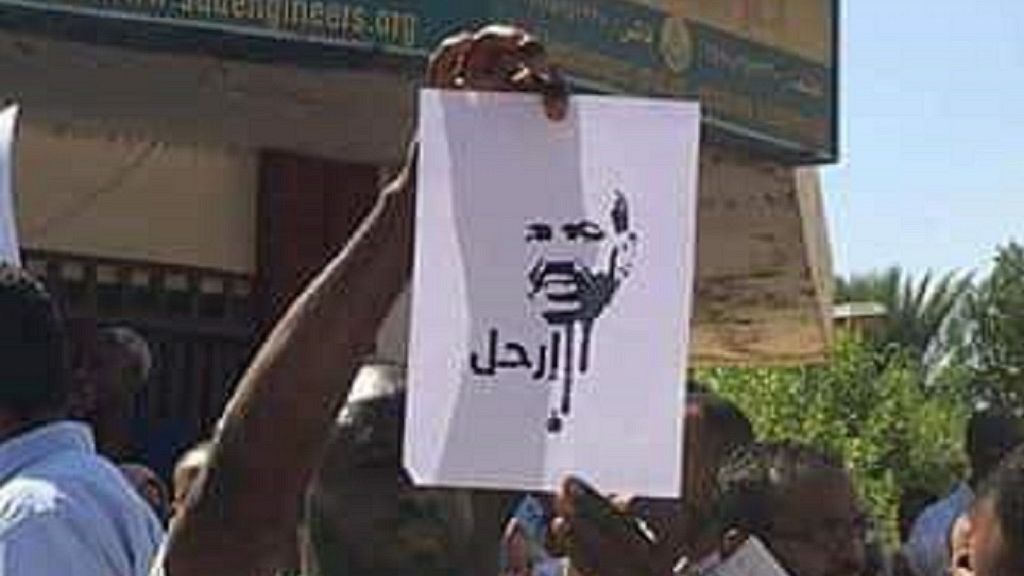
January 22, 2019: Foreign media thrown out
The Sudanese government on Monday withdrew work permit for a number of foreign journalists working in the country, multiple sources disclosed.
The affected journalists are from Qatar-based Al Jazeera, Saudi-owned Al Arabiyya and Turkey’s Anadolu News Agency.
- Saadeldine Hassan of Al-Arabiya and Al-Hadath
- Burham Abd al-Hameed and Mahmud Hajjaj of Anadolu Agency
- Osama Sidahmed, Ahmed al-Reheid, Badawi Basheer of Aljazeera Arabic
Reports also indicated that authorities confiscated editions of the al-Tayar, al-Jareeda, al-Ba’th, al-Midan newspapers and ordered the suspension of journalist Suhayr Abd al-Rahim over his writings.
Protests meanwhile continue to rock parts of the country calling for the resignation of the government. President Al-Bashir has continued to stress that polls scheduled for 2020 were the only way he could be ousted from power.
#Sudanese authorities have withdrawn work permits from journalists working for Al Jazeera and Al Arabiya TV Satellite channels. The authorities also revoked the work permits from correspondents of the Turkish Anadolu news agency.
— Rachael Akidi (@rakidi) January 22, 2019
January 19 – 20, 2019: Police – protesters clash at funeral
Embattled Sudanese president Omar Al-Bashir has reiterated his call for protesters to realise that the only credible way to change government is via the polls.
He has stressed this point in previous addresses at pro-government rallies held to counter the dogged anti-government protests that broke out since last December.
The Arabiyya channel quoted Bashir as saying: “The forces that are against Islam and Sudan do not support the stability of our country.”
“The doctor who was killed in Khartoum was killed by infiltrators. We have arrested rebels in Darfur who admitted to killing protesters. Investigations have proven that the death of protesters has been executed by infiltrators who want chaos.”“
“We tell the youth that the country is your country and the future is your future. Next year’s elections are not far off and we will respect the people’s choice.”
“The youth went out to express themselves but sabotaging forces hid among them and created chaos.”
Meanwhile protests continue to roil parts of the country with its attendant crackdown by members of the security forces using tear gas and live bullets to disperse protesters.
January 18, 2019: Police – protesters clash at funeral
Sudanese police shot live ammunition on Friday as mourners gathered outside the home of a 60-year-old protester who died from a gunshot wound sustained during anti-government demonstrations, a Reuters witness said.
Around 5,000 mourners turned out for the funeral and burial of Moawia Othman, who was shot late on Thursday during demonstrations against the 30-year rule of President Omar al-Bashir which are now into their fifth week.
There were no immediate reports of casualties. Police could not immediately be reached for comment.
Police opened fire after some mourners pelted them with rocks and overturned a police car, the Reuters witness said.
Mourners also blocked a main street in the Burri district of the capital Khartoum with stones and chanted “There is no God but God!” and “Martyr! Martyr!”. Several were wailing and crying and some were carrying Sudanese flags.
After Othman had been buried and the weekly Muslim Friday prayers began at noon, the mourners dwindled to hundreds who began chanting “Down, that’s it”, which has become the slogan of protesters signalling their main demand for Bashir to step down.
They also chanted “Freedom! Freedom!” and “A million martyrs for a new era!” Some stood on the overturned police car.
As the atmosphere in the area grew more tense, police and other security forces pulled out of Burri completely, leaving no security presence on its streets.
Across the River Nile in the neighbouring city of Omdurman, police fired tear gas at dozens of demonstrators as they left a mosque in the Wad Nubawi district, witnesses said
Security forces have at times used live ammunition to disperse protesters. The official death toll in five weeks of protests stands at 24, including two security forces personnel. Rights groups say the figure may be nearly twice as high.
REUTERS
January 17, 2019: Top journalist rearrested amid dogged protests
Sudanese intelligence agency officials have rearrested one of the country’s famed journalists, Faisal Mohammed Salih, reports indicate. Organizers have also confirmed to the AFP news agency that two people were killed in today’s protests.
NISS officials are said to have detained Faisal and two other journalists from the offices of the Al-Youm Al-Tali newspaper. Faisal was previously arrested on January 3 and held for about two days before his release without charge.
Explainer: Will Bashir fall at the hands of relentless protests? The exact circumstances surrounding the latest arrests are yet to be established but it is believed to be linked with the current protests. The government has a notorious reputation for clamping down on the media.
As of today, protests continue to roll on in parts of the country as has been the case since mid-December 2018. Areas hit by today’s rallies included the capital Khartoum, North Kordofan and Dafur regions.
There are also reports that security forces fired tear gas as usual to disperse protesters whiles some witnesses reported the use of live rounds during protests in the city of Burri.
January 16, 2019: Top political actor held, protests roll on
Mahmoud Al-Gamal, an aide to a former ally of president Al-Bashir has been arrested according to reports.
Mahmoud’s boss, Dr. Ghazi Salaheldeen served in the government between 1989 and 2013 when he quit over mistreatment of protesters. He currently leads a coalition of opposition coalitions.
He joins the list of former administration officials calling for an end to the regime and for the installation of a transitional, democratic government. The president has rubbished calls to step down, he says he will only do so if he loses elections slated for 2020.
Meanwhile a new day brought new set of protests in parts of the country.
Lawyers in Ad-Damazin, Blue Nile State.
Signs say “Freedom is Peace & Equality” (a protest chant) and “Release Detainees” pic.twitter.com/x46GyqJRJk
— Yousra Elbagir (@YousraElbagir) January 16, 2019
January 15, 2019: Protests in Kalakala, southern Khartoum
Today’s round of protests were south of the capital, Khartoum, in the town of Kalakala as security agents fired tear gas to disperse hundreds who marched on to the streets.
Even as security forces have given protection to pro-government rallies – some attended by embattled president al-Bashir, most anti-government protesters have been met with a wave of arrests and tear gas.
In this video – transmitted from Kalakala a little while ago – protesters chanting “peaceful, peaceful, against the thieves” have to run as they are heavily tear-gassed.
The phone is dropped and tear gas wafts over the camera. pic.twitter.com/dYmo6VCuB2
— Yousra Elbagir (@YousraElbagir) January 15, 2019
January 14, 2019: Bashir insists change possible by polls not protests
“There’s only one road to power and that is through the ballot box. The Sudanese people will decide in 2020 who will govern them,” President Bashir is quoted as saying at the rally in Niyala, the capital of South Darfur state.
Protests continue to rock different parts of the country calling for his resignation after thirty years in power. This is not the first time Bashir is flatly refusing to be bogged by the rolling protests.
Whiles security forces have given protection to pro-government rallies, most anti-government protesters have been met with a wave of arrests and tear gas.
The president also reportedly thank neighbouring countries that he said were supporting the regime’s efforts to stabilize the country. He thanked South Sudan, Eritrea, Ethiopia and Niger.
The South Sudan government has publicly said it supported the Al-Bashir government in the wake of protests.
Bashir has in a previous rally in the capital Khartoum, thanked other allies, amongst them: Egypt, Qatar, China and Russia. He has routinely dismissed other countries he says are propping up protesters.
January 13, 2019: Security ‘ambush’ protest plans
Security forces have been deployed in the town of Bahri, located north of the capital Khartoum, as at Sunday (January 13). Protests were called for Bahri and other towns.
The deployments are a sign of government’s move to avoid the protests from taking place. The same tactic has been used as security forces thwart protest plans.
Despite security deployments, hundreds have taken to the streets in anti-government protests that have been met with a wave of arrests according to journalists covering the incident.
Protests are taking place in Bahri and towns like Al-Fao, Al-Fasher, Amri and Gadarif. There are running battles as the military tries using tear gas to disperse people.
Confirmed protests today (so far) in the following cities:
Khartoum North (Bahri), Khartoum state
Al-Gadarif & Al-Fao, Gadarif state
Al-Fasher & Nyala, Darfur state
Madani, Al-Gezira state
Karima & 'Abry, Northern state
Port Sudan, Red Sea State
Al-Doiem, White Nile state
— Yousra Elbagir (@YousraElbagir) January 13, 2019
January 11, 2019: Protester teargassed in Khartoum and Omdurman
Protests in parts of the capital Khartoum and across the second largest city of Omdurman were dispersed by police using tear gas and according to some reports live ammunition.
Hundreds turned up after Friday prayers (Jum’ah) to continue with a wave of anti-government protests that have rocked the country since last December.
Forced dispersal of protests have been the main tactic by security agencies. The protesters are demanding the resignation of the president who has stressed he will only leave if he loses a vote.
A march after Friday prayers in Jabra, Khartoum today pic.twitter.com/5TpIaMoUuj
— Yousra Elbagir (@YousraElbagir) January 11, 2019
January 10, 2019: Govt, Human Rights Watch death toll ‘dispute’
Anti-government protests that have rocked Sudan for weeks have left 22 people dead, authorities said on Thursday, as rally organisers called for fresh demonstrations.
Angry crowds have staged hundreds of protests against the regime of President Omar al-Bashir after a government decision last month to triple the price of bread.
The updated death toll included three demonstrators who died Wednesday as rival rallies rocked the capital Khartoum and its twin city of Omdurman, on the west bank of the Nile.
Protesters chanting “freedom, peace, justice” and “revolution is the people’s choice” marched in Omdurman but they were quickly dispersed by riot police firing tear gas.
Police confirmed that three protesters had died in the Omdurman demonstration but did not specify the cause of death.
“An illegal gathering was held in Omdurman and police dispersed it with tear gas,” police spokesman Hashim Abdelrahim said in a statement.
“Police later received reports that three protesters had died and several (were) injured. We are now investigating.”
That raised the total death toll in protests so far to 22 including two security personnel, according to official figures.
New York-based Human Rights Watch said on Monday that at least 40 people including children had been killed in the unrest, citing Sudanese activists and medical workers.
A doctor told AFP late on Wednesday that six protesters were being treated at Omdurman’s main hospital for gunshot wounds. A group of doctors at the hospital said that police had fired tear gas at the facility.
“There was also shooting inside the hospital,” the group said in a statement, without specifying who had opened fire.
January 10, 2019: Anti-govt protesters killed in Omdurman
Sudanese police used tear gas to disperse “illegal” protests against the 30-year rule of President Omar al-Bashir in the city of Omdurman in which three people were killed, state news agency SUNA said on Thursday.
Sudan’s second-largest city “witnessed riots and illegal gatherings” on Wednesday, SUNA said, amid weeks of demonstrations.
SUNA quoted police as saying that they knew of three deaths and several people being wounded and that these attacks were being investigated. No other details were immediately available.
Police chased demonstrators into side roads, from where they regrouped to resume their protests, witnesses said. Hundreds also blocked a main road.
Bashir vowed at a rally of thousands of supporters in the capital Khartoum on Wednesday that he would stay in power.
His speech failed to quell the unrest, with security forces fighting running battles on Wednesday with protesters in Omdurman on the other side of the Nile to the capital.
Protesters have been staging demonstrations almost daily for weeks, enraged by shortages of bread and foreign currency. The unrest has come as the ruling party has pressed ahead with plans to change the constitution so Bashir can stay in office beyond his present term, which ends in 2020.
REUTERS
January 9, 2019: Pro-Bashir protests hit Khartoum
Sudanese president joined his supporters who marched in the capital Khartoum to express their trust in his leadership despite spreading anti-government protests that started last year.
Bashir along with party and state officials gathered at the Green Space Park for the event which is seen as a “fight back” to the persistent protests demanding that he steps down as president.
Anti-government demonstrations continue to rock other parts of the country – the most recent being in the eastern city of al-Qadarif. In Khartoum, security forces have routinely dispersed protests.
Addressing the crowd, Bashir said: “From Green Space park to the corners of Sudan. In this moment, I have to thank the people of Sudan. An educated, generous people who are the epitome of manners and etiquette…everyone who has dealt with us says Sudanese people are the best people.
“They want to harass us over dollars. They said there are small things we need to do to make dollars and grain, abundant. But our pride is worth more than anything.
“We thank the friends who have stood with us. China, Russia, Kuwait UAE and Qatar,” he added.
Meanwhile, the United States, United Kingdom, Norway and Canada in a statement on January 8, 2019; called for the general respect for rights of protesters.
They cautioned that government could face sanctions if the trend of arbitrary arrests and armed dispersal of protesters continued. They also called for persons arrested to be arraigned before courts and be allowed the necessary legal representation.
On the left: aerial photo of Green Space Park taken by Mey Mamoun 30 minutes ago.
On the right: aerial views of Green Space Park on national television (not the same angle) pic.twitter.com/K6KHx6XnyH
— Yousra Elbagir (@YousraElbagir) January 9, 2019
January 8, 2019: Statement by the Troika and Canada 2>
The Troika (the United Kingdom, Norway and the United States) and Canada, continue to be deeply concerned about the Government of Sudan’s response to the recent protests in Sudan, and the detention without charge or trial of a number of political activists and protestors.
Our countries emphasize the right of the Sudanese people to protest peacefully and in accordance with the rights to freedom of peaceful assembly, association, and expression guaranteed under Sudanese and international human rights law.
We are appalled by reports of deaths and serious injury to those exercising their legitimate right to protest, as well as reports of the use of live ammunition against protestors.
We urge the Government of Sudan to ensure that a fully transparent and independent investigation into the deaths of protestors takes place as soon as possible, and that those responsible are held to account.
Furthermore, our countries call upon the Government of Sudan immediately to release all journalists, political opposition leaders, human rights activists, and other protestors currently in detention without charge or trial, and to allow those facing charges full access to legal representation.
The Government of Sudan’s actions and decisions over the coming weeks will have an impact on the engagement of our governments and others in the coming months and years.
We urge the Government of Sudan to respond to the current challenges by implementing the necessary political reforms, to allow the Sudanese people to exercise their constitutional rights to peacefully express their political, economic and social views freely and without any fear of retaliation or persecution.
January 8, 2019: Protests in Qadarif2>
Defiant protesters hit the streets in the town of Gadarif located in the country’s east. Thousands were seen in a video making the rounds on social media.
The government looks as defiant as the protesters with the later demanding the resignation of President Omar al-Bashir.
Tomorrow could be a defining moment in the past weeks as two rival groups plan protests in the capital Khartoum. Security forces have routinely thwarted anti-government gatherings in the capital.
A better view, probably the biggest one so far pic.twitter.com/jXhPPLahBD
— Secular Muslim (@SecularSudanes4) January 8, 2019
January 7, 2019: Polls not protests can lead to change of govt – Interior Minister
The Sudan government remains resolute in its position that no amount of protests will lead to a resignation of the president.
Interior Minister, Ahmed Bilal, is on record to have told the Parliament on Monday that the only viable means of change will be via the ballot box and not taking to the streets.
“Regime change will not happen without elections – protests are not constitutionally viable,” he is quoted to have said.
After dogged anti-government protests that crossed into 2019 after starting in December last year, a pro-government rally is scheduled for the capital on Wednesday, January 9.
Meanwhiles protests continue in parts of the country despite a clampdown by security forces. Khartoum is one of the most difficult places to organize protests due to security presence but other major cities continue to be rocked by marchers.
Protests in Port Sudan, today. pic.twitter.com/HIucchTRe6
— Yousra Elbagir (@YousraElbagir) January 7, 2019
January 7, 2019: Pro-govt Sudanese plan march
Sudanese President Omar al-Bashir’s supporters plan to hold a pro-government rally on Wednesday in the capital Khartoum, as police tear-gassed anti-government demonstrations in several cities across the country on Sunday.
Sudanese Labour Minister Bahar Idris Abu Garda on Sunday that the announced pro-government rally would take place on Wednesday in the Green Yard Garden in Khartoum.
It is the first of its kind to be held since the beginning of anti-government demonstrations late last year.
The protests against rise in the price of bread and shortage of fuel cascaded into calls for the resignation of the president.
Khartoum and several cities across the vast country has witnessed series of protests that have almost always been dispersed by members of the security forces using tear gas.
The president has admitted that there are germane economic issues that his administration was working hard to fix. Bashir has however ruled out resignation.
January 6, 2019: Arrested journalist freed, state security thwarts planned protests
After two days in detention, a famed Sudanese journalist critical of the government has been released by the intelligence agencies, reports have confirmed.
Faisal Mohammed Salih was picked by officials of NISS on January 3 but he confirmed to a journalist covering the developments that the officials had no concrete reason for picking him up.
He averred that their actions was part of wider intimidation tactics by a government unable to control the protesters.
Faisal is safe and sound – he told me they released him at 2 am last night. He doesn't believe the National Intelligence Security Service (NISS) had any real investigation but wanted to send a message that they will carry out targeted arrests & that the protests have no impact
— Yousra Elbagir (@YousraElbagir) January 5, 2019
Meanwhile, the Sudanese Association of Professionals have called a protest for today. The march is planned to take place across four areas in the capital, Khartoum.
Khartoum has in the last few days been under tight security as protests have either been thwarted or dispersed. The most recent was after last Friday’s congregational prayers.
A university lecturers planned protest has also been ‘ambushed’ by members of the security forces.
There's a scheduled standing protest today by faculty members of the University of Khartoum, where they aim to hold up signs with the demands of the people. The Teachers Union HQ is surrounded by armed security trucks. They're parked and waiting for then.
— Yousra Elbagir (@YousraElbagir) January 6, 2019
BREAKING: University of Khartoum teachers gathered at their Union HQ have been closed in by armed forces and security trucks, preventing them from going onto the main street for their planned protest.
— Yousra Elbagir (@YousraElbagir) January 6, 2019
January 4, 2019: Ex-Bashir ally asks him to quit
A top ruling party politician has waded into the anti-government crisis in Sudan calling on the president to resign so that a transitional government can chart a path for democracy.
Al Shafi Ahmed Mohamed belongs to the National Congress Party, NCP, having served as its secretary in the past. He has also worked as Sudan ambassador to Iran in the past.
He is the latest ruling party official to call for Bashir to resign. According to him, the resignation will pave the way for a transitional, technocratic government.
Meanwhile, the Sudanese Association of Professionals have labeled today “Freedom Friday” with a call for nationwide protests after the weekly Friday prayers.
Call by the Sudanese Association of Professionals for people across Sudan to protest after Friday prayer.
They've called it “Freedom Friday”.
— Yousra Elbagir (@YousraElbagir) January 4, 2019
Social media images shows people in the second largest city of Omdurman waving placards and chanting anti-regime slogans after the Friday prayers.
Omdurman is located in the central Sudan on the White Nile opposite the capital, Khartoum. State security agents have all but thwarted any protest plans in the capital over the past few days.
January 3, 2019: Bashir meets workers’ union, protests roll on
Reports indicate that protests continued in the Port Sudan in the country’s east as protesters called for President Omar Al-Bashir to resign.
Police reportedly used tear gas to disperse marchers before they could reach the local government premises to submit a petition to authorities.
More footage from protests in Port Sudan today. Eyewitnesses say that police used tear gas to disperse crowds before they reached local governorate to hand in memo calling for Bashir's resignation. pic.twitter.com/NuR6SaLL5L
— Yousra Elbagir (@YousraElbagir) January 3, 2019
In the midst of the protest tensions, the intelligence outfit, NISS, is said to have arrested one of Sudan’s famed journalists, Faisal Mohammed Salih.
The exact circumstances surrounding his arrest are yet to be established but it is believed to be linked with the current protests.
Security agents have all but managed to thwart any attempts to stage similar protests especially in the capital Khartoum since the new year kicked in.
Bashir, meanwhile, met with a workers’ union that is close to the ruling party. he is reported to have touted efforts his government continues to make to better the economic conditions of Sudanese.
Reports indicate that he spoke about pay rises and improved workers welfare whiles also slamming persons who were reportedly pushing for a transitional government.
“My father was a labourer on the farms in Kafouri. I was a construction worker and fell down from scaffolding, and broke a tooth. I had to stop working from the bleeding but was never compensated.”
“I don’t want anyone to tell me about real suffering and poverty. I lived it,” stressing further that Khartoum will not allow outsiders to destabilize the country. “We won’t play with the country’s safety with people who are getting orders from outside.”
An incredible journalist I've known since I was little. I had a lovely chat with him on Tuesday, and he encouraged me to keep going.
He paved the way for me and so many other Sudanese journalists. Praying for his safety and quick release. https://t.co/uS73PvkFMX
— Yousra Elbagir (@YousraElbagir) January 3, 2019
December 31, 2018: Planned protest ‘ambushed’ by security forces
Security trucks without license plates have swarmed the starting point of a planned protest in the Sudanese capital, Khartoum, according to reports.
The Al-Qandool roundabout in Khartoum where today’s protest is supposed to kick off has more security personnel than there are protesters.
But even as protesters are bent on someway, somehow kicking off their line of action, life is going on normally as shops remain open and people go about their daily activities.
Walking around Al-Qandoul roundabout. No room to breathe. Every two steps there's a security truck with no license plates and full of plain-clothed officers. Largest concentration of armed forces and military trucks I've seen in one area. The dushkas are out.
— Yousra Elbagir (@YousraElbagir) December 31, 2018
December 30, 2018: Uniform-clad Bashir speaks on crisis: In his words
“We want to maintain security and we want the police to do that by using less force.
”Cases received at hospitals over the past week have shown many gunshot wounds to the head, neck and chest. Peaceful protesters are being targeted to be killed.
“We admit that we have economic problems… but they can’t be solved by destructions, lootings, and thefts.
“We don’t want our country to go the way other countries in the region have gone. We will not allow our people to be refugees. If this happens where can we go in this region?”
Bashir: “The police are doing a great and expensive job and security is an expensive commodity,” he said, adding that he was satisfied with the police performance in the country and revived the police forces deployed in all parts of Sudan.
— Yousra Elbagir (@YousraElbagir) December 30, 2018
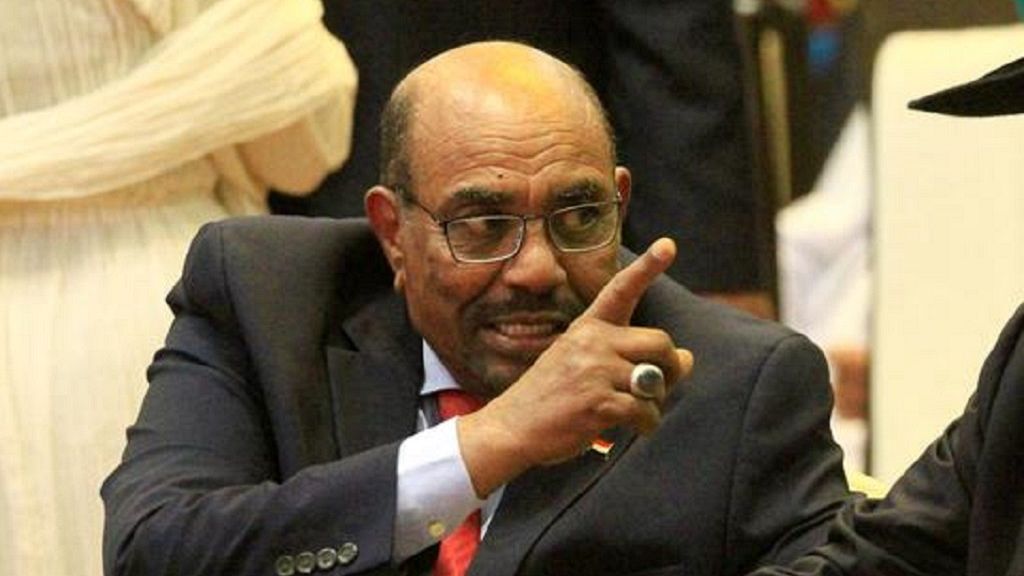
Relative calm returns to Khartoum
After Friday, December 28, clashes between anti-government protesters and members of the security forces, the capital of Sudan, Khartoum, is quiet according to reports.
A freelance journalist currently covering the situation, Yousra Elbagir, said the capital as much as other protest-hit towns remained calm with “no major presence.”
“Spotted some very long petrol station lines in Omdurman, despite seeing fuel trucks moving around the city. Some people even playing cards in their bus!
“A convoy of army (not militia trucks) just drove past us. They seem to be moving around the city rather than parking in areas where people congregate, she said via Twitter.
Khartoum is quiet today – streets that were rammed with RSF militia and army trucks – like those by Wad Nubawi mosque in Omdurman – are now very calm. You'll find trucks posted up on corners here and there but no major presence.
— Yousra Elbagir (@YousraElbagir) December 29, 2018
An opposition party behind the protest calls had recently vowed that it would continue to call for mass action seeking the resignation of President Omar Al-Bashir – one of Africa’s long serving leaders.
The United Nations Secretary General has meanwhile commented on the situation in the country calling for restraint and a probe into infractions on the part of law enforcement bodies. See statement below.
Statement attributable to the Spokesman for the Secretary-General on Sudan
The Secretary-General is following with concern developments in the Republic of Sudan, including the reported violence and fatalities. He appeals for calm and restraint and calls on the authorities to conduct a thorough investigation into the deaths and violence. He extends his condolences to all those who have lost loved ones in the violence.
The Secretary-General emphasizes the need to safeguard freedom of expression and peaceful assembly.
New York, 28 December 2018
Protests persist as police fire tear gas
Sudanese security forces fired tear gas and stun grenades at anti-government protesters in Khartoum and other cities on Friday, the tenth day of demonstrations sparked by an economic crisis.
Protests over rising prices, shortages of basic commodities and a cash crunch erupted in the city of Atbara over a week ago and quickly spread to cities across Sudan. Authorities have shuttered schools and declared curfews and states of emergency in several regions.
Residents say police have used tear gas and sometimes live ammunition against demonstrators. Protesters have repeatedly targeted and burned the offices of President Omar al-Bashir’s party and called for an end to his 29-year rule.
Earlier on Friday, security forces fired tear gas and stun grenades at 300-400 worshippers as they left a mosque near the capital Khartoum after Friday prayers, a Reuters witness said.
The group in Omdurman, across the River Nile from Khartoum, was fired upon as people exited the mosque chanting “peaceful, peaceful”. Around 30 SUVs belonging to the security forces had surrounded the square outside the building before noon prayers.
Protests reported in several #Sudan towns after Friday prayers on what activists have called “Martyrs Friday” including Khartoum, Omdurman, Atbara, El-Obeid and police reportedly respond with tear gas pic.twitter.com/uwDBrlrsqG
— Isma'il Kushkush (@ikushkush) December 28, 2018
Protests were also held in Khartoum and other cities including Port Sudan and Dongola, witnesses said.
According to official figures, at least 19 people have been killed, including two military personnel, but Amnesty International on Tuesday estimated the death toll to be nearly double that.
REUTERS
Opposition leaders arrested
Civil society groups on Friday accused authorities of arresting at least nine opposition leaders, ahead of fresh anti-government protests expected after weekly Muslim prayers.
A committee of professional organisations involved in the protests said in a statement that authorities had raided a meeting of opposition leaders in Khartoum. They detained a total of nine people, including Siddiq Youssef, a senior leader of Sudan’s Communist Party, as well as leaders from the pan-Arab Ba’ath and Nasserist parties, the statement said.
The raid came after a coalition of opposition groups called for more protests after the weekly noon prayers on Friday.
The head of the media office at the National Intelligence and Security Service denied any knowledge of the arrests.
Fourteen leaders of one of Sudan’s two main opposition groupings were detained last Saturday and then released some nine hours later.
Sudan doubles down on social media amid protests
A digital rights group is reporting that Sudanese authorities have clamped down on access to social media in the wake of spreading anti-government protests.
Access Now and the #KeepItOn coalition – a group that fights internet shutdowns – have thus called on network operators in the country to push back from state pressure and keep people online.
The coalition said on Thursday that it was demanding that: “operators like MTN Sudan and Zain Sudan to more transparently notify the public of restrictions and push back against government requests that could violate human rights.”
Government has officially denied any such move even though social media has been a hot spot for the organization of protesters in what started out as a protest against hikes in bread and fuel prices.
The death toll so far is another area of contention with the latest government figures pegged at below twenty whiles Amnesty said days ago that it was up to thirty-seven.
#BREAKING 19 killed in Sudan bread price protests, government says pic.twitter.com/OhAHygU9nX
— AFP news agency (@AFP) December 27, 2018
Journalists join protests
A network of Sudanese journalists went on strike Thursday in the wake of deadly protests sparked by a hike in bread prices, while opposition groups called for further rallies.
“We declare a three day strike from December 27 to protest against the violence unleashed by the government against demonstrators,” said the Sudanese Journalists’ Network which advocates free speech.
Journalists in Sudan frequently complain of harassment from the authorities, and the African country has a dire rating on international press freedom rankings.
Entire print runs of newspapers are often confiscated over articles deemed offensive by the powerful National Intelligence and Security Service (NISS), which is spearheading the current crackdown on protesters.
Activists and opposition groups have called on people to take to the streets again over the next few days.
“We urge the Sudanese people to continue their demonstrations until success is achieved by overthrowing the regime,” the Sudanese Communist Party said in a statement.
Bashir’s allies demand investigation
A member of President Omar al-Bashir’s government on Wednesday called for a probe into the killings of protesters in demonstrations that have rocked the economically troubled country.
Sudanese authorities say eight protesters have been killed in clashes, but Amnesty International has put the death toll at 37.
At a press conference in Khartoum, Popular Congress Party senior official Idris Suleman said his party’s own reports indicated that 17 people “were martyred” and 88 wounded in the demonstrations.
“We call on the government to launch an investigation into the killings,” Suleman said.
“Those who committed these killings must be held accountable.”
Popular Congress Party is part of Bashir’s government and has two ministers of state in the cabinet and seven lawmakers in parliament.
Qatar keen on stability in Sudan
As anti-goverment protests in Sudan entered their fifth day, the presidency said on Monday that Qatar’s Emir Sheikh Tamim bin Hamad Al Thani called his counterpart, Omar al-Bashir on Saturday to express his support.
Since Wednesday, cities across Sudan have been shaken by protests triggered by an economic deterioration. Protesters have also called for an end to Bashir’s 29-year rule.
“During the call Sheikh Tamim declared that his country stood with Sudan and was ready to offer all that was necessary to help Sudan overcome this ordeal, stressing his keenness for the stability and security of Sudan,” the statement said.
Qatar’s state news agency QNA confirmed the call.
Qatar and its regional rivals have increasingly vied for influence in Sudan and other countries on the Red Sea and Gulf of Aden.
Gulf states have also been an important source of funding for Sudan after it lost three-quarters of its oil output when the south seceded in 2011.
Opposition defends protesters
Sudan’s opposition leader, Sadiq al-Mahdi, has called for Mahdi called for a “national and international investigation” into the deaths of protesters during price demonstrations that rocked the country this week.
A government decision to increase the price of a loaf of bread from one Sudanese pound to three (from about two to six US cents) has sparked demonstrations across the country since Wednesday.
The protest movement “is legal and was launched because of the deteriorating situation in Sudan,” he said in his first news conference since returning home on Wednesday after almost a year in exile.
Death toll
While the official government position says at least eight people died during Thursday’s protests, while only person lost their life on Friday, the opposition said “22 people were martyred and several others wounded”.
Madhi blamed ‘armed repression’ for the death of the protesters, while authorities insist they used restraint in containing demonstrations.
In a rare press conference, the head of Sudan’s National Intelligence and Security Service (NISS), Salah Abdallah Mohamed Saleh, said seven people had been arrested in connection with the burning of ruling party office buildings in earlier protests.
“We recognise that we must have self-restraint and manage things wisely and take care of the lives of the people and of public property, and we are not bothered by demonstrations, but we are upset by the lapse in security,” said Saleh, also known as Salah Gosh.
Protests affect schools, internet
Web users reported problems accessing the internet, and some accused the government of blocking social media including Facebook, Twitter and WhatsApp in a bid to stop protesters communicating. There was no comment on that from the government.
Authorities have declared states of emergency and curfews in cities in at least four of Sudan’s 18 states, according to local media.
The education ministry suspended some school or university classes in the states of al-Qadarif, White Nile and Nile River, private TV channel Sudania 24 reported.
The ministry has also announced that it would shutter universities in Khartoum state and schools and kindergartens in the capital city.
Protests ‘derailed’ by infiltrators
Sudan’s government has blamed nationwide protests that have left at least eight people dead, on ‘infiltrators’ and opposition parties, rather than the soaring prices.
The demonstrations on Wednesday and Thursday were among the biggest since crowds came out against cuts to state subsidies in 2013.
Officials told Sudania 24 TV that six people died in protests in the eastern city of al-Qadarif and two more in northern Nile River state, without giving details on how they were killed.
“Peaceful demonstrations were derailed and transformed by infiltrators into subversive activity targeting public institutions and property, burning, destroying and burning some police headquarters,” government spokesman Bishara Jumaa said in a statement released by the official Sudan News Agency.
He did not name anyone but he also said the protesters, some of whom have called for the overthrow of President Omar al-Bashir, were being exploited by opposition parties.
“Some political parties emerged in an attempt to exploit these conditions to shake security and stability in order to achieve their political agenda,” Jumaa said. He did not identify the parties.
He added that the demonstrations had been “dealt with by police and security forces in a civilised way without repression or opposition”.
Police fired teargas to break up a crowd of around 500 people in the capital Khartoum, then chased them through back streets and made arrests, a witness said.
Public anger in Sudan has been building over price rises and other economic hardships, including a doubling in the cost of bread this year and limits on bank withdrawals. At 69 percent, Sudan’s inflation rate is among the world’s highest.
Exiled opposition politician returns
Leading Sudanese opposition figure Sadiq al-Mahdi returned to Sudan on Wednesday from nearly a year in self-imposed exile and called for a democratic transition in Sudan.
“The regime has failed and there is economic deterioration and erosion of the national currency’s value,” Mahdi, who was Sudan’s last democratically elected prime minister and now heads the Umma party, told thousands of supporters.
Sudan’s president Omar al- Bashir, one of Africa’s longest-serving leaders, took power in an Islamist and military-backed coup in 1989. Lawmakers this month proposed a constitutional amendment to extend term limits that would have required him to step down in 2020.
Protests spread to other cities
Anti-government protests spread to the Sudanese capital, Khartoum on Thursday, as more people demonstrate against high prices and a liquidity crunch.
Around 150 protesters shut down a main street in Khartoum and chanted: “The people want the fall of the regime.”
Police in riot gear broke up the protests.
A member of parliament said a university student was killed when protests spread from Atbara city to al-Qadarif.
‘‘The situation in al-Qadarif has become dangerous and the protests have developed to include fires and theft and it’s now out of control,’‘ Mubarak al-Nur said.
Thursday protests start in Atbara
Security forces in Sudan fired teargas to quell protests on Thursday, after people took to the streets chanting anti-government slogans.
A state of emergency was declared in the Atbara city on Wednesday after hundreds of people protested against price increases and set fire to the local headquarters of the ruling party.
A curfew was declared from 6 p.m. to 6 a.m. in Atbara — Sudan’s railway hub, with a large railworker population manning various lines, interchanges and maintenance workshops — the state security committee said.
Atbara is historically a hotbed for anti-government protests.
“Today, the headquarters of the ruling party in the city of Atbara and the headquarters of the local government and a fuel station were burned,” Hatem al-Wassilah, governor of the Nile River state, said on Sudania 24 TV.
Taming inflation
A decision to reduce bread subsidies this year sparked rare nationwide protests in Sudan after bread prices doubled. But Sudan increased flour subsidies by 40 percent in November.
Port Sudan, the capital of Red Sea state, also saw limited protests on Wednesday, witnesses told Reuters.
Sudan’s annual inflation edged up to 68.93 percent in November from 68.44 percent in October.
Prime Minister Motazz Moussa said inflation for the full year 2018 was expected to be 63 percent.
Severe shortages of fuel and bread, both subsidised by the government, have forced people in the capital and other cities to queue at bakeries and petrol stations.
Earlier on Wednesday, Moussa said Sudan’s 2019 budget included 66 billion Sudanese pounds ($1.39 billion) in subsidies, 53 billion of which is for fuel and bread.



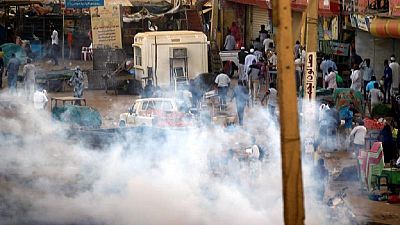

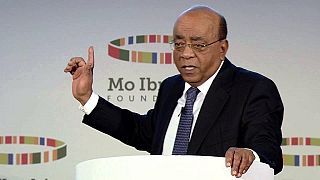
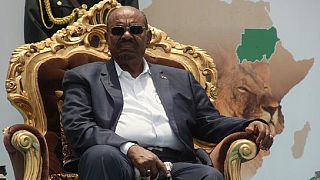
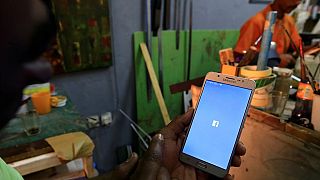
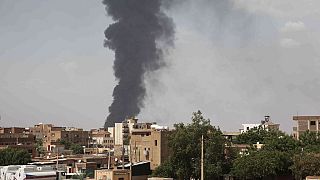
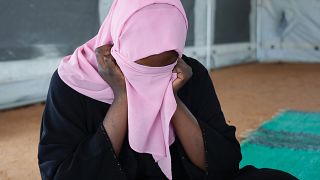
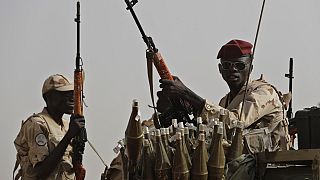
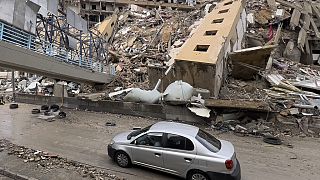
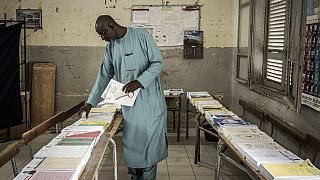
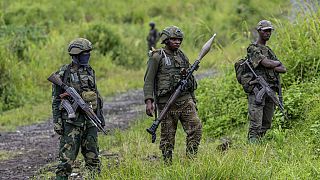
01:07
Pro-palestinian demonstrators protest in Rio de Janeiro as G20 summit unfolds
02:09
Russia vetoes UN resolution calling for immediate cease-fire in Sudan
01:00
Maori MPs stage haka protest against treaty bill
01:09
Nigeria's inflation rate surges as food prices escalate
01:00
Sudan war: UK, Sierra Leone to propose new resolution calling for 'end of hostilities'
00:58
Baku: Protesters call for Gaza ceasefire during opening of COP29